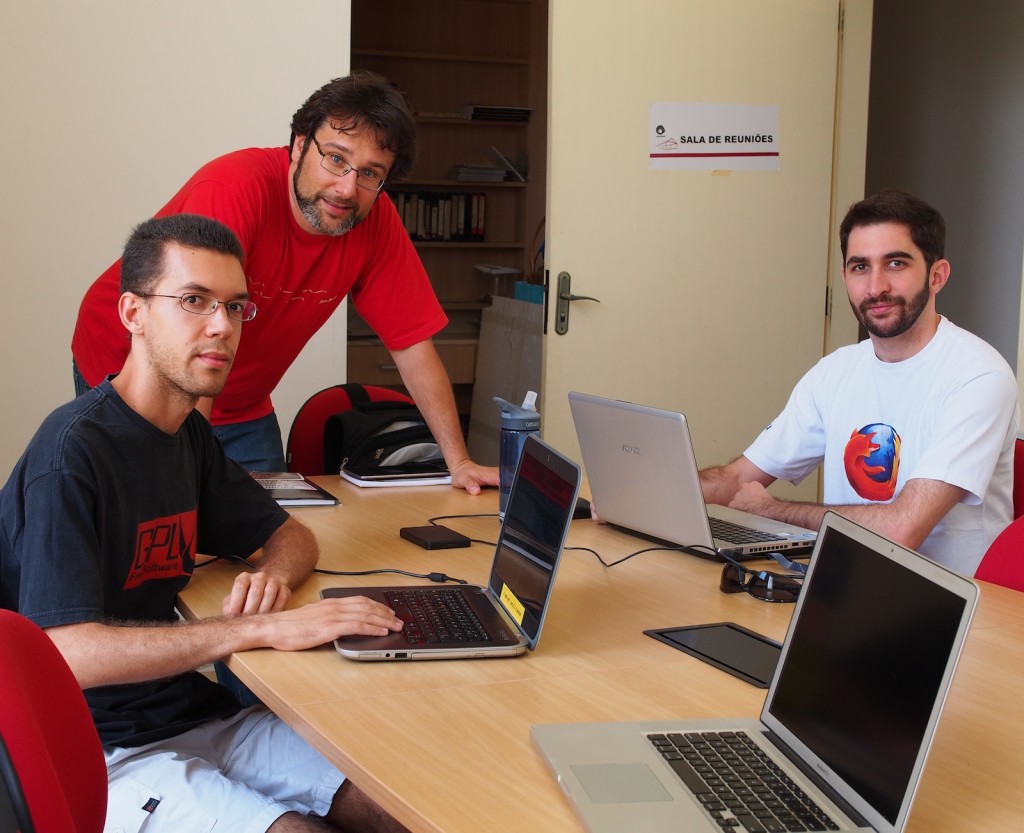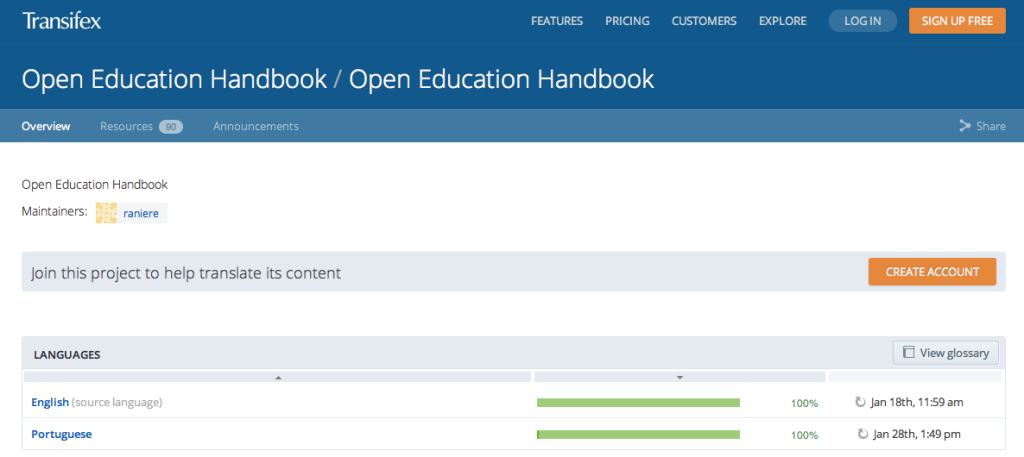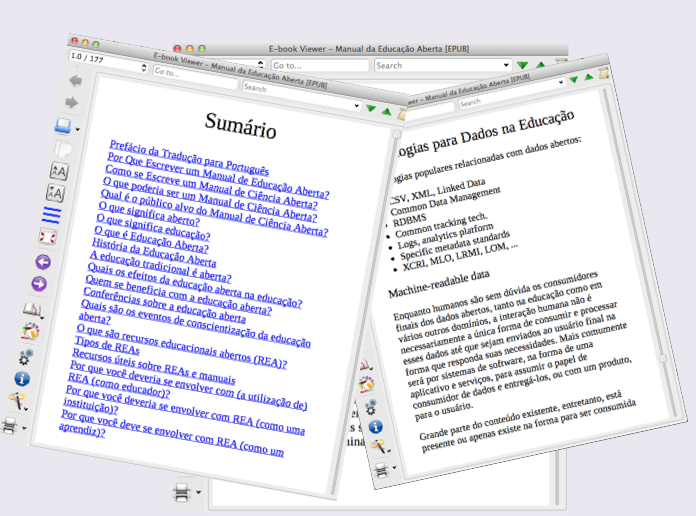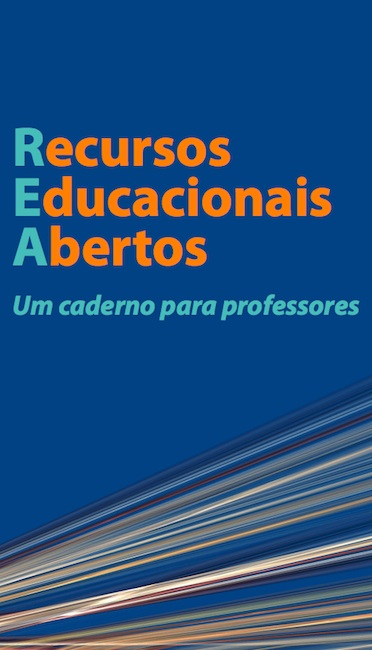Manual de Educação Aberta
On January 20th, as part of Education Freedom Day, the Open Education Handbook was translated and adapted to Portuguese (you can read more about the initial call for interest published on the blog). The translation was led by Raniere Silva, Tel Amiel and Ricardo Panaggio with support from the Open Education Working Group.
Raniere, Tel and Panaggio have written a post for us on how the translation went with some useful feedback for the development of the handbook. We also have the Portuguese version available for readers to download in EPUB format. [Note 6th February – the Portuguese version of the handbook is now available in Booktype too.]
******
At the end of January we translated the draft of the Open Education Handbook to Portuguese as part of the Education Freedom Day activities. The process was carried out by exporting the handbook from Booktype and using Transifex to manage the translation.
The headquarters of the translation was the Campinas” Digital Culture House (the web site is only available in Portuguese) where we (Raniere, Tel and Panaggio) worked on the translation with the remote help from six other people.
And today we are proud to make this translation available in EPUB format (since the original text is not yet a final version you will find some chapters that have only comments and links).
- The original handbook in EPUB format (English)
- The translated version in EPUB format with acknowledgments (Portuguese)
You can use Calibre or FBReader to open the files, both are free software.
We had plans to do a continuous translation of the Open Education Handbook however this was not currently possible to due technical issues using Booktype and Transifex (for more information see this report). We are in discussions with the Booktype developers to see if they can solve this technical issue.
During the translation we identified some important issues that will need to be considered in further development of the handbook:
- Some of the content had been copied and pasted from a sites that did not explicitly license their information freely/openly (most of the time these were project descriptions taken directly from the project sites). Nonetheless, there will need to be clarity around the use of this content.
- We found many of the conceptualizations to be an initial draft (or as above, copied) that did not explain the concepts comprehensively.
- Most of the examples and references came from US and Europe, this will impose a barrier to global /Portuguese readers who are limited by context
- There is considerable use of new concepts and/or neologism, and that sometime this new terminology is difficult to translate
- In some places we found URLs and in others places links. There needs to be more consistency in the handbook.
There was also a technical issue with regard to some of the html. In some areas there was style information and other details brought over from Google docs. This made the translation difficult. The html could do with some cleaning.
These are not unusual concerns, considering that this was a crowd-created resource which is still in the early stages of being written and we are attempting a “direct” translation of the resource. Idealy (or from the get go) the resource will now be remixed, considering the contributions which might most benefit a Brazilian version of the book, adding new content, and making new connections, which can then offer improvements back to the English version.
This was an interesting opportunity to experiment with Booktype and Transifex and to work collaboratively in order to expand the reach of a valuable resource. As a sub-project, we will now “remix” some of this content and weave it, after some adaptation to the Caderno REA an open book on Open Educational Resources written collaboratively, licensed openly (CC-BY) and distributed via wiki and print, available in Portuguese.
Acknowledgements
The following people helped in the translation of the Open Education Handbook into the Manual de Educação Aberta:
- Camila Canellas
- Duda Nogueira
- Elisângela Liberatti
- Lucas Barbosa da Silva
- Luciana Graziuso
- Raniere Gaia Costa da Silva
- Ricardo Panaggio
- Talita Mota
- Tel Amiel
 Open Education Working Group
Open Education Working Group 







Leave a Reply